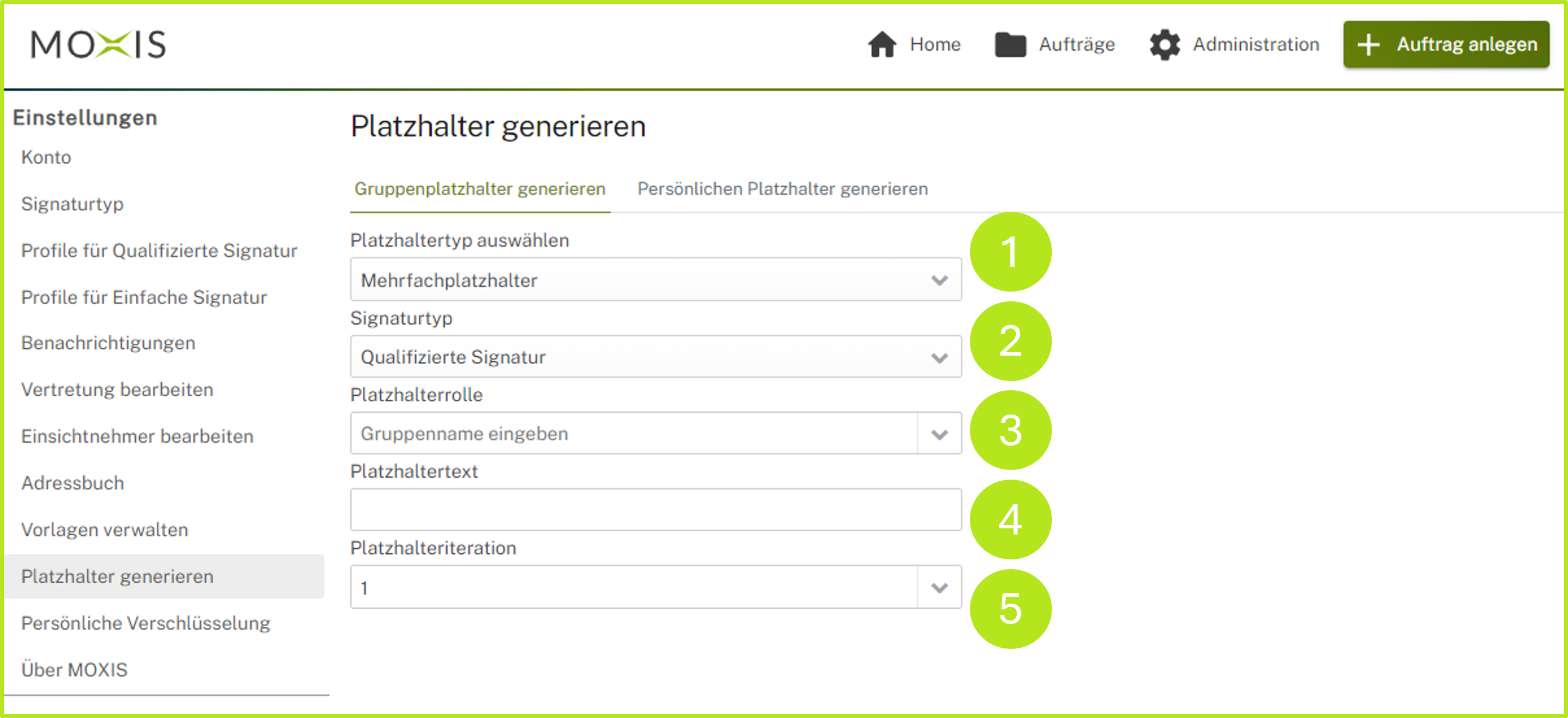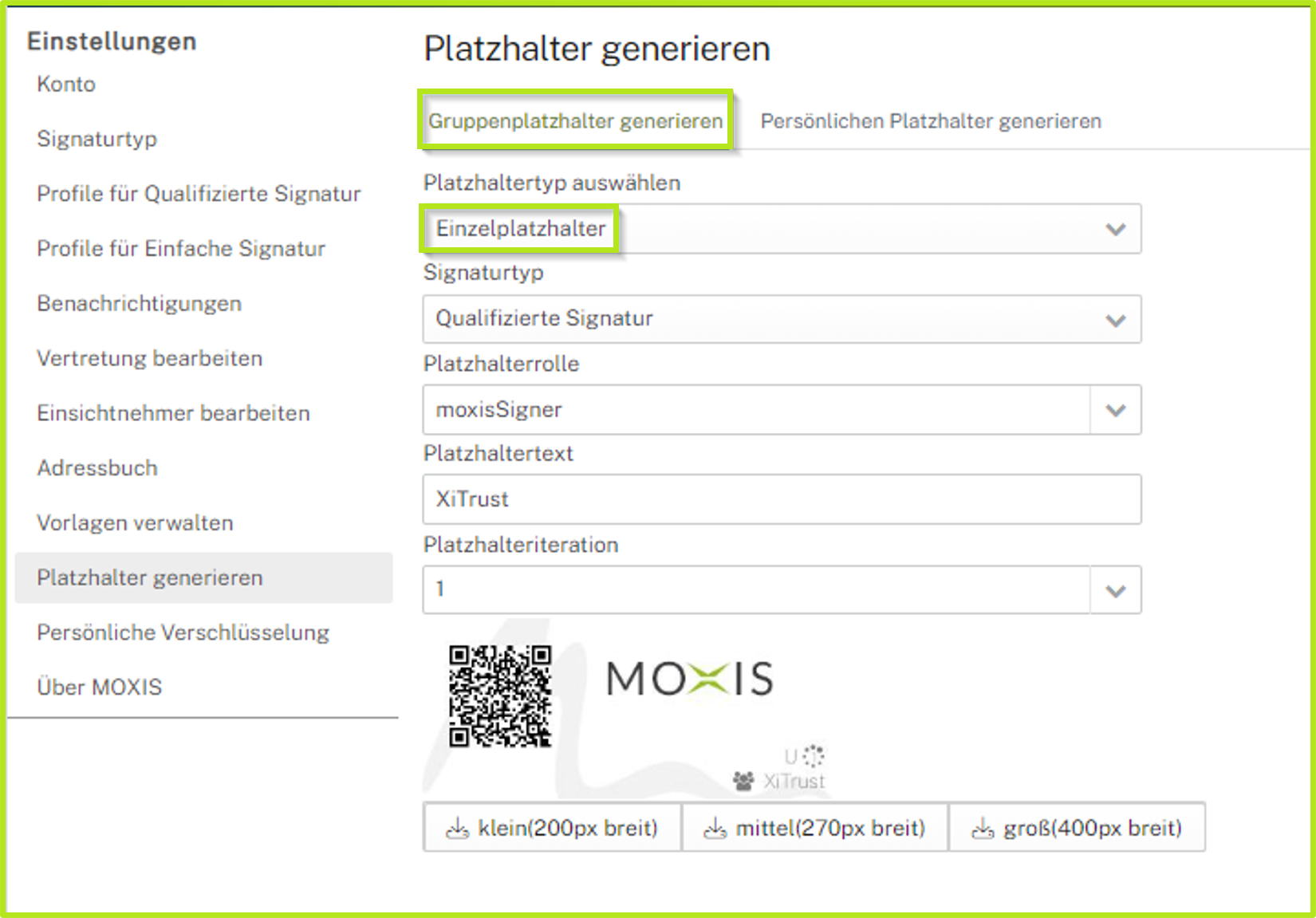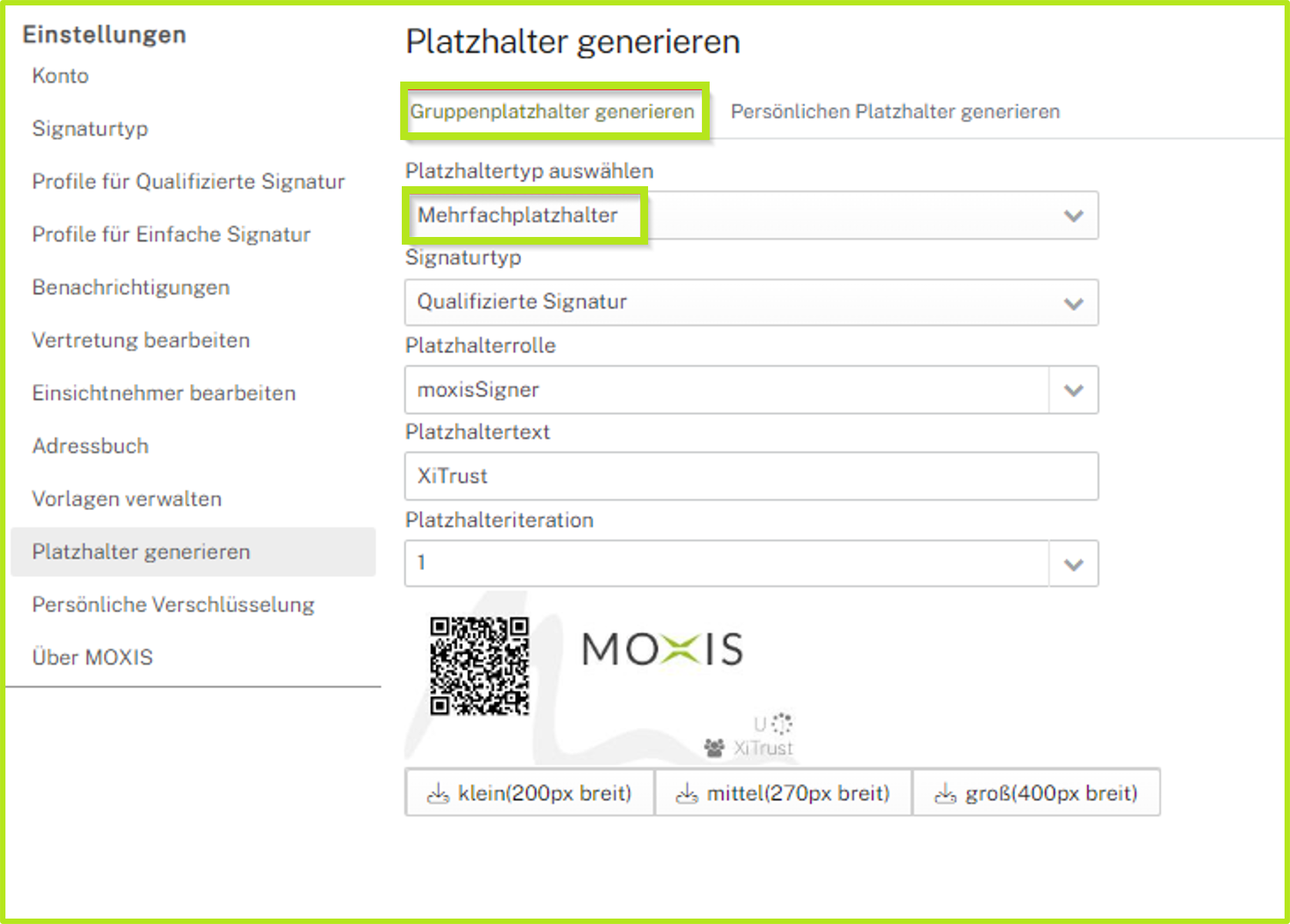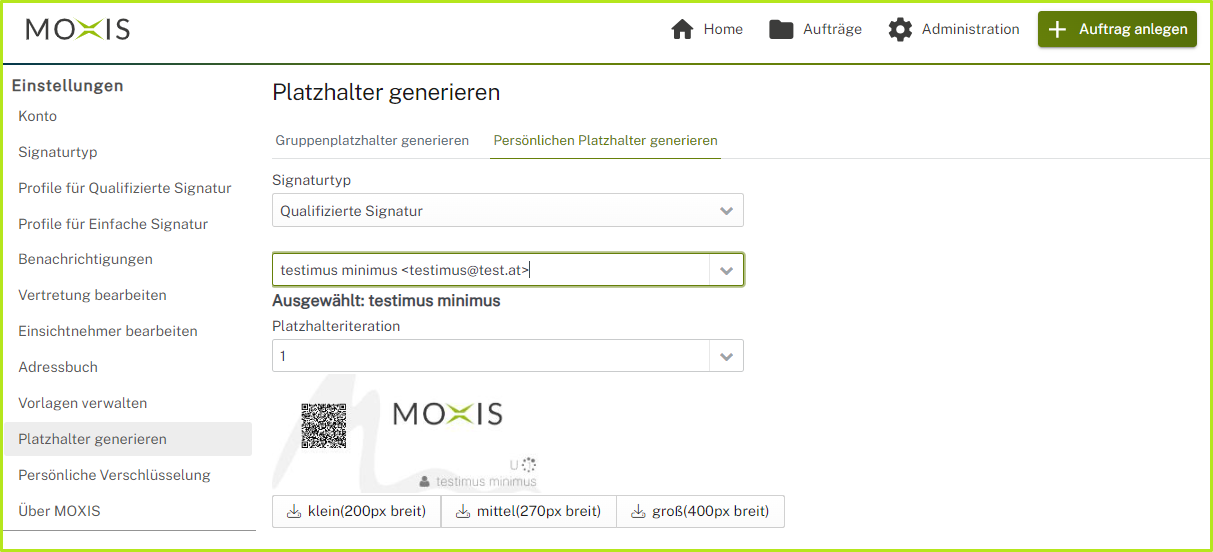[v4.50] Introduction to the placeholder generator (optional)
Contents
To enable signatories to submit their signature in MOXIS, you can use a so-called placeholder, among other things. This depends on the configuration of your MOXIS instance and the rights granted to you.
1. General information on placeholders
There are two types of placeholder:
personal placeholders (see figure 1) and
group placeholders
A group placeholder is a placeholder that specifies that only users who are members of a specific group or who have a specific role are allowed to sign here. These groups are created by the network administrator, for example, when connecting to the Active Directory. A distinction is made between single placeholders and multiple placeholders.
The following information can be obtained from the example of a personal placeholder (see figure 1): The QR code of the placeholder contains information about who is to sign in which process in which quality (signature, release, internal or external) and at which iteration level. This cannot be changed later in the process because the placeholders are already uploaded as part of the document. In addition, personal placeholders contain further information, such as the name of the user who is to sign and the iteration level (in our example it is the first one, which we know because it is displayed as U1).

Abbildung 1: Persönlicher Platzhalter in MOXIS 4.50
2. The placeholder generator
You can use the placeholder generator to create personal placeholders and group placeholders. You will find the placeholder generator in your profile settings. In the first step, please select whether you want to generate a group placeholder or a personal placeholder (see Figure 2). Depending on which placeholder you have chosen, please follow the instructions in the next chapters.
2.1. Creating group placeholders
You will find all the information you need to generate a group placeholder under the tab Generate group placeholder. But first, let's take a look at the individual options available to you when creating a group placeholder (see Figure 2 [1] - [5]).
(1) Select placeholder type: Here you determine whether you want to create a single or multiple placeholder. Please note: With the single placeholder option, only one person from a group will be invited. In contrast, with the multiple placeholder option, one or more persons can be invited. All invited persons receive an e-mail with a request for a signature, but only one person from the group can sign per placeholder. The first-come, first-served principle applies here.
(2) Select signature type: In the next step, select the signature type.
(3) Define placeholder role: Please enter the name of the group from which a person should be invited. Please note: This option only applies if you have selected single placeholder in the placeholder type.
(4) Enter placeholder text: Insert a placeholder text (freely selectable) here. The text should be designed in such a way that it is clearly recognisable at a glance which group placeholder is involved.
(5) Define placeholder iteration: Here you determine the decision level at which the placeholder may be placed.

Figure 2: Placeholder generator – generate group placeholders overview
2.1.1. Generating group placeholders as single placeholders
To create a single placeholder, select the option single placeholder as the placeholder type on the tab Generate group placeholder (see Figure 3). As soon as you have filled in all the other fields, you can download the placeholder. Three sizes are available:
small (200 px wide)
medium (270 px wide)
large (400 px wide

Figure 3: Generate a single placeholder in MOXIS
2.1.2. Generating group placeholders as multiple placeholders
To create a multiple placeholder, select the option multiple placeholder as the placeholder type on the tab Generate group placeholder (see Figure 4). As soon as you have filled in all the other fields, you can download the placeholder. Three sizes are available:
small (200 px wide)
medium (270 px wide)
large (400 px wide)

Figure 4: Generate a multiple placeholder in MOXIS
2.2. Creating a personal placeholder
A personal placeholder is permanently assigned to one MOXIS user. To create a personal placeholder, click on the tab Generate personal placeholder, select the signature type and the person for whom you want to create the placeholder, and also define the iteration level. (see figure 5). As with group placeholders, you can choose between three sizes when downloading.

Figure 5: Generate a personal placeholder
